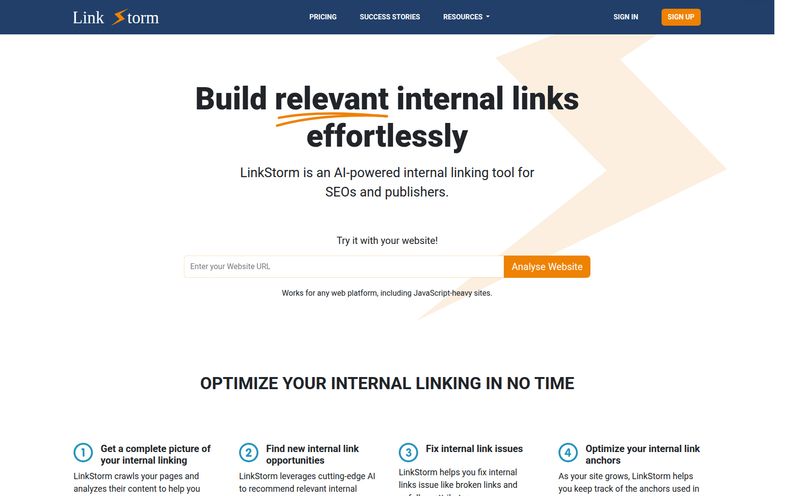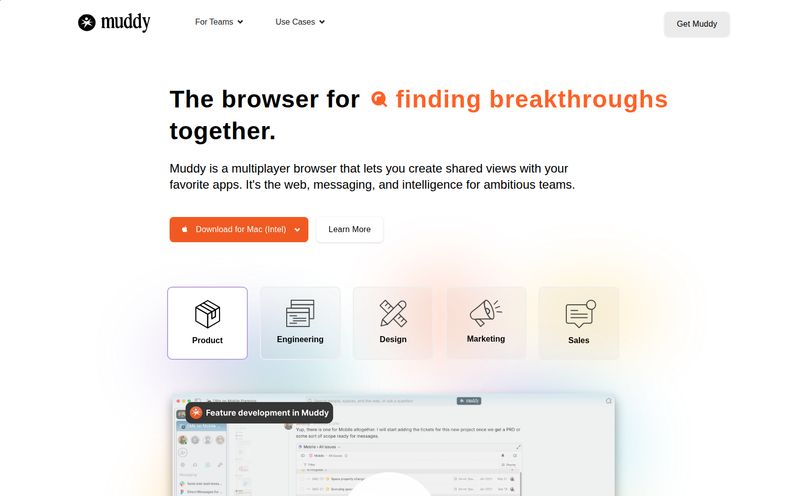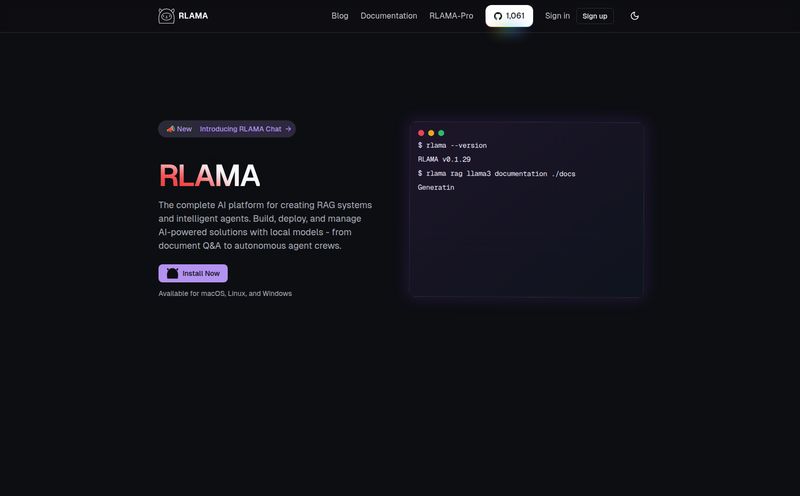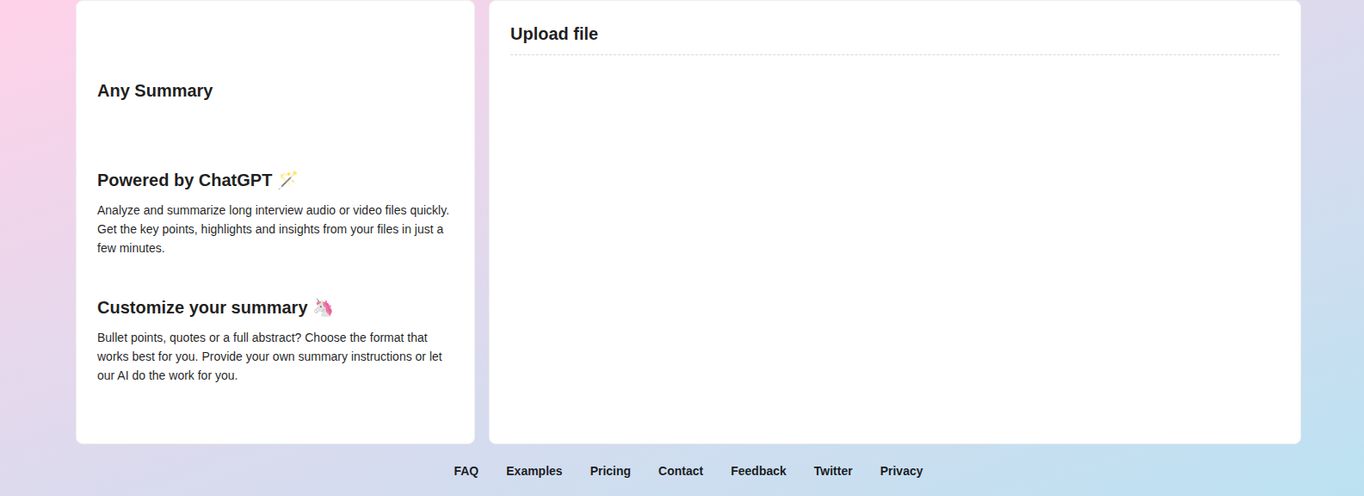Open up your work calendar. Go on, I’ll wait. What do you see? If it looks anything like mine used to, it’s a terrifying game of Tetris where the blocks are all meetings, and you’re always losing. Back-to-back calls, 30-minute “quick syncs” that are anything but, and that weekly check-in that has devolved into a collective staring contest.
We’ve all muttered the mantra: “This could have been an email.”
It’s a symptom of modern work culture. A belief that being busy means being productive. But as anyone in the trenches of SEO, marketing, or really any knowledge work knows, our best work happens during uninterrupted focus time. That precious, sacred state of “deep work” that Cal Newport wrote so eloquently about. Meetings are, more often than not, the enemy of deep work.
So when I heard about a tool called MeetLess that uses AI to audit your calendar and kill unnecessary meetings, my ears perked up. A digital guardian for my schedule? An AI bouncer for my time? Sign me up. But is it just another tech gimmick, or could this actually be the solution to meeting overload we’ve all been waiting for?
So, What is MeetLess Anyway?
At its core, MeetLess is an AI-powered assistant that connects to your calendar. Its one and only job is to analyze your upcoming meetings and figure out which ones are actually essential. It's designed to be a buffer between you and a schedule packed with low-value interactions. Think of it less as a tool and more as a very logical, slightly ruthless personal assistant who isn’t afraid to ask, “Do you really need to be in this call?”
It scans your schedule for meetings that could be handled more efficiently—through a quick Slack message, a shared document, or a simple email. It’s not about eliminating all human contact; it's about optimizing it so that when you do meet, it’s for a good reason.

Visit MeetLess
How Does This AI Magic Actually Work?
This isn't just some random meeting-deleter. From what I’ve gathered, the process is pretty slick. Once you grant it access to your calendar (more on that later), the AI gets to work. It doesn't just look at the titles. It analyzes the attendees, the meeting description, the stated purpose, and probably even the history of similar meetings to make a judgment call.
It then presents you with its findings, flagging specific events with a recommendation. For example, it might say:
“This ‘Project Update’ with 8 attendees could likely be replaced by a summary email. Suggest this alternative?”
It provides insights at a glance, rating a meeting’s importance or urgency and suggesting the best way to follow up if you do decide to skip it. This is where it gets interesting. It’s not just a binary “go or no-go” system. It’s about suggesting a smarter way to communicate. It nudges you and your team towards more asynchronous communication, which is a godsend for productivity.
The Good Stuff: Why I'm Genuinely Intrigued by MeetLess
As a professional who juggles content strategy, client calls, and deep-dive keyword research, my time is my most valuable asset. The promise of clawing some of that back is incredibly appealing.
Saving Your Sanity (and Time)
The most obvious benefit is cutting down on meeting fatigue. A study from the University of North Carolina found that employees spend an average of 18 hours a week in meetings, and over 30% of that time is considered unproductive. That’s insane! That's almost half a work week spent on stuff that doesn't move the needle. MeetLess aims directly at that bloat. Even saving 2-3 hours a week would be a massive win for mental clarity and actual output.
Productivity on Your Own Terms
Fewer meetings mean more time for focused work. It's that simple. Imagine having a three-hour block of uninterrupted time to actually write that article, build that campaign, or analyze that traffic data. The quality of work that comes from those sessions is always, without fail, ten times better than work done in 15-minute sprints between calls. MeetLess helps create those golden windows of opportunity.
Smarter Communication, Not Just Less
I really like that the tool doesn't just say "skip this." It suggests how to replace it. This is a subtle but powerful feature. It helps shift team culture away from the default of "let's hop on a call" to a more thoughtful approach. Should this be a Slack huddle? A comment thread in Asana? A detailed email? By providing alternatives, it trains us to be more intentional communicators.
Let's Be Real: The Potential Downsides
No tool is perfect, and I'd be a bad blogger if I didn’t approach this with a healthy dose of skepticism. There are a few things that give me pause.
First, the big one: data privacy. To work its magic, MeetLess needs to read your calendar data. For many companies and individuals, that’s a non-starter. You have to trust the platform with potentially sensitive information about your projects, clients, and internal discussions. You'll want to read their privacy policy with a fine-toothed comb.
Second, the AI is only as good as its programming. It can’t understand human nuance. It might flag a one-on-one with your manager as “low priority” based on the title, not realizing it’s a critical check-in for morale and relationship-building. Or it might not grasp teh strategic importance of a seemingly informal brainstorming session. It's a tool to provide suggestions, not a dictator for your schedule. You still need to be the final arbiter.
Finally, it’s just not for every type of meeting. A sensitive performance review, a complex creative kick-off, or a crucial sales negotiation absolutely needs that face-to-face (or at least voice-to-voice) connection. The risk is that users might become over-reliant on the AI and skip meetings that really, truly matter.
The Million-Dollar Question: What's the Price?
As of right now, the MeetLess team is keeping pricing details under wraps. I couldn't find a pricing page or any public information on the cost. This isn't unusual for a tool in its early stages.
If I had to guess, I'd expect to see a tiered model. Maybe a free version with limited scans for individuals, a pro plan for power users and freelancers, and an enterprise plan for teams that includes more robust analytics. A per-user, per-month fee seems like the most likely scenario, probably in the $10-$20 range to compete with other productivity apps.
Who is MeetLess Really For?
Honestly? I think this tool is for anyone who has ever stared at their calendar and felt a wave of exhaustion. It’s for busy professionals, overloaded managers, and entire teams drowning in a culture of endless meetings. It's for the project manager trying to protect their developers' focus time, and it's for the solo marketer who needs to balance client-facing time with actual creative work.
If you believe that your time is valuable and that not every discussion warrants a 30-minute calendar block, then you are the target audience for MeetLess.
Frequently Asked Questions about MeetLess
Can MeetLess automatically cancel meetings for me?
From what I can tell, no. It acts as a recommendation engine. It flags the meeting and suggests an alternative, but you are the one who has to make the final decision to decline or propose a change. This is a good thing—it keeps you in control.
What calendars does MeetLess work with?
While not explicitly stated, it's almost certain it would integrate with the major players like Google Calendar and Microsoft Outlook/Office 365, as that's where the vast majority of professional users live.
Is my calendar data safe with MeetLess?
This is a critical question. Any reputable service in this space should use end-to-end encryption and have a clear, transparent privacy policy. I would advise anyone interested to scrutinize their policy before signing up.
Can I customize the AI's recommendations?
This is a feature I'd hope to see. For example, being able to tell the AI that all one-on-ones with a specific person are always high-priority, regardless of the title, would make the tool much more powerful and personalized.
What happens if the AI gets it wrong?
The user is the ultimate failsafe. The AI provides a suggestion, not a command. If it flags a critical meeting as skippable, you simply ignore the suggestion. Over time, one would hope the AI learns from these overrides.
Is there a free trial for MeetLess?
Given the lack of pricing information, it's unclear. However, a free trial or a freemium model is a standard practice for SaaS tools like this, so I would be surprised if they didn't offer one upon launch.
Final Thoughts: Is It Worth Giving MeetLess a Shot?
I have to say, I'm optimistic. We're drowning in digital noise, and our calendars have become the primary battlefield for our attention. A tool that intelligently and automatically fights on our behalf is a powerful concept.
No, MeetLess won't be a silver bullet that magically fixes a broken company culture. But it could be a fantastic catalyst for change. It empowers individuals to question the necessity of every meeting, and it provides data to managers to see just how much time is being sunk into potentially low-value calls.
For me, the potential upside—more time for deep, meaningful work—far outweighs the risks, provided the privacy and security measures are solid. I'll be keeping a close eye on this one. Because a future with fewer meetings isn't just more productive. It's a future that's just plain better.
Reference and Sources
- Newport, Cal. Deep Work: Rules for Focused Success in a Distracted World. Grand Central Publishing, 2016.
- Rogelberg, S. G., Scott, C., & Kello, J. (2007). The Science and Fiction of Meetings. MIT Sloan Management Review.



